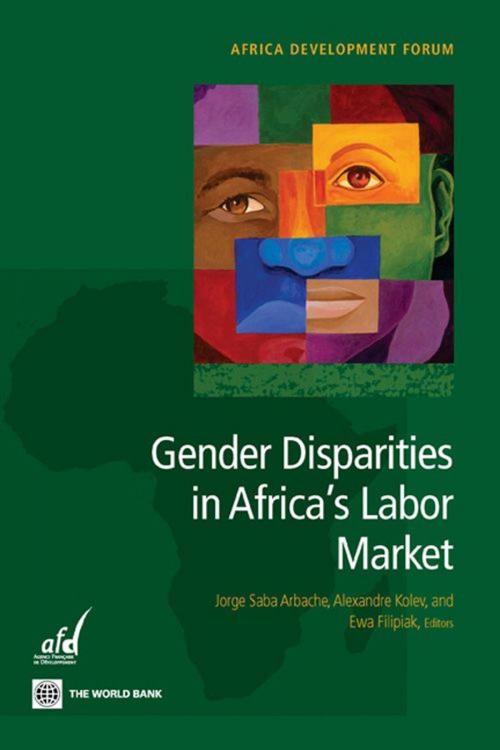Gender Disparities In Africa's Labor Market
Nonfiction, Social & Cultural Studies, Social Science, Gender Studies| Author: | Arbache Jorge Saba; Kolev Alexandre; Filipiak Ewa | ISBN: | 9780821380703 |
| Publisher: | World Bank | Publication: | August 5, 2010 |
| Imprint: | Language: | English |
| Author: | Arbache Jorge Saba; Kolev Alexandre; Filipiak Ewa |
| ISBN: | 9780821380703 |
| Publisher: | World Bank |
| Publication: | August 5, 2010 |
| Imprint: | |
| Language: | English |
Women's earnings are a fraction of male's earnings in several African countries. It is tempting to conclude that this wage gap is a sign of discrimination against women in the labor market. Yet this book uses new datasets to show that the gap is not simply the result of discrimination in the labor markets but rather the result of multiple factors including access to education and credit cultural values and household duties and above all labor market conditions. It shows that gender disparities grow when economies are not functioning well and labor markets are tiny. More than the effect of discrimination it seems that job rationing causes those with better human capital and those with more power in the householdusually the mento take the few jobs that are available. It is hardly surprising then that in a region where only a fraction of the labor force finds jobs in the formal sector gender disparities in earnings are so high. The book further documents that firm-level and sector characteristics are additional powerful factors in explaining the gender disparities in the labor market.As the causes are not simple neither are the solutions; multifaceted strategies are needed. By providing environments that support economic growth and more importantly job creation as well as by promoting equal access for women to education and rethinking the attitudes that limit what women may achieve governments in the region will substantially improve the well-being of all their peoples.Gender Disparities in Africa's Labor Market helps to fill the knowledge gap and identify the links between gender disparities and poverty reduction. The work was implemented in collaboration with a range of poverty and labor market studies to maximize its usefulness for policy dialogue in specific countries.This book will be of interest to policy makers students academics gender experts and all those interested in gender issues and development.
Women's earnings are a fraction of male's earnings in several African countries. It is tempting to conclude that this wage gap is a sign of discrimination against women in the labor market. Yet this book uses new datasets to show that the gap is not simply the result of discrimination in the labor markets but rather the result of multiple factors including access to education and credit cultural values and household duties and above all labor market conditions. It shows that gender disparities grow when economies are not functioning well and labor markets are tiny. More than the effect of discrimination it seems that job rationing causes those with better human capital and those with more power in the householdusually the mento take the few jobs that are available. It is hardly surprising then that in a region where only a fraction of the labor force finds jobs in the formal sector gender disparities in earnings are so high. The book further documents that firm-level and sector characteristics are additional powerful factors in explaining the gender disparities in the labor market.As the causes are not simple neither are the solutions; multifaceted strategies are needed. By providing environments that support economic growth and more importantly job creation as well as by promoting equal access for women to education and rethinking the attitudes that limit what women may achieve governments in the region will substantially improve the well-being of all their peoples.Gender Disparities in Africa's Labor Market helps to fill the knowledge gap and identify the links between gender disparities and poverty reduction. The work was implemented in collaboration with a range of poverty and labor market studies to maximize its usefulness for policy dialogue in specific countries.This book will be of interest to policy makers students academics gender experts and all those interested in gender issues and development.















